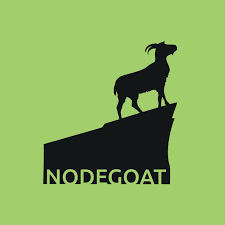Conference
The Nodegoat Day 2021 will be run as an entirely virtual event via Zoom, hosted by the University of Bern (Switzerland). At Nodegoat Day 2020, only projects from the University of Bern were presented. As this had already attracted an international audience, projects from all over the world will be invited to Nodegoat Day 2021. Reports and impressions from Nodegoat Day 2020 can be found here:
https://www.infoclio.ch/de/tagungsbericht-nodegoat-day-2020
https://histdata.hypotheses.org/1937
Proposals for Project showcases (max. 300 word proposal)
Data visualisations in the Digital Humanities are booming. Through the visual representation of research data, previously unknown patterns and developments can be uncovered and lead to new insights. At the same time, data visualisation helps research gain more visibility and facilitates interdisciplinary exchange, especially when projects work with the same visualisation software. This is the case with Nodegoat, a multifunctional, virtual research environment for managing, analysing and visualising research data. The Nodegoat Day therefore will bring together research projects from very different disciplines. The aim of the conference is to show and reflect how a digital tool like Nodegoat can be used in humanities research and/or teaching, what influence digital tools can have on formulating and answering research questions, and how they can lead us to new insights and research horizons. Projects at Nodegoat Day should present experimental, substantial or completed research, provide concrete insights into their conceptual data models and visualisations, and situate their approach within their discipline and the Digital Humanities. Contributions from young scientists are explicitly welcome as well as trans- and interdisciplinary impulses. Special consideration should be given to the data models: the principle of data modeling in Nodegoat is object-oriented and follows the actor-network theory: Persons, events, artefacts, places or historical sources are first considered as objects of a horizontal order, which form a network and create a hierarchy only through their relationships to each other. Nodegoat users can define data models, objects and relationships individually and thus realise their own project-specific data structures. Furthermore, a data model can also be adapted to existing reference models, which also improves the interoperability of research data. The design of the data model is of course crucial for the visualisations: every object in Nodegoat can be given in the model geographical and temporal attributes that can be analysed and visualised for the research data. The potential of such data visualisation functions (maps, networks, time series) as well as the algorithmic calculations in Nodegoat will be reflected and discussed at the conference. Overall, there will be numerous opportunities for comparison between the individual projects, from which impulses and exchange across disciplinary boundaries can be expected as well as networking in the Nodegoat community. The contributors will have 20 minutes for presentation and afterwards there will be 10 minutes for questions and inputs.
In addition, two longer “partisan rounds” are scheduled for spontaneous ultra-short presentations on projects in the experimental stage, questions about how to run a Nodegoat project, functions of Nodegoat, long-term archiving of Nodegoat data, and questions about life in general, as well as critical reflections on methods and results of digital projects.
The abstracts are requested along with a brief biographical note by email no later than May 15, 2021, to Kaspar Gubler (kaspar.gubler@hist.unibe.ch). Feedback will be provided no later than the end of May 2021. The conference language is English.
Guests can register sending an email to: larissa.achermann@hist.unibe.ch
Projects around the globe are welcome to participate in Nodegoat Day 2021.
Organised by
Kaspar Gubler, University of Bern
Veranstaltungsort
Zoom
Event language(s)
English
Zusätzliche Informationen
Kosten
CHF 0.00
